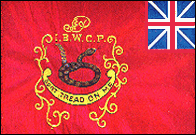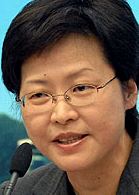


American journalist Loretta Tofani, who revealed that the entire population of Hong Kong (‘nearly everyone’, to be precise) is taking part in a plot to persecute her, responds to sceptics discussing her experiences surrounded by enemies in guest houses at the top of Nathan Road on the HKExpats message board. Curtly. A pity, since I was acquiring something of a taste for her JK Rowling-meets-Ian Fleming narrative style.
Truth being stranger than fiction, I heartily recommend Joe Studwell's Asian Godfathers - Money and Power in Hong Kong and South-East Asia in the review I have just written.
Mon, 23 July
Wild American friend Odell stares morosely at his organic avocado and eucalyptus espresso in a quiet corner of the IFC mall branch of Pacific Coffee. His right hand is bandaged up, following an X-ray at Queen Mary Hospital yesterday. Something to do with metacarpals, he says. A couple of beers in Wanchai on Saturday evening with Sid, a fellow member of the Hong Kong Association of Gwailos Married to Southeast Asian Women of Humble Origins, went badly wrong, though he has no memory of it. He thinks he fell over, probably around midnight.
His phone starts to play the Triumphal March from Aida. “Yeah? Oh hi – yeah, what happened? Uh-huh. Oh Shit!” At this point, a plump couple sitting nearby jab an electronic gizmo of some sort, and it starts to beep loudly. Odell looks up. “Will you two fat people stop making that fucking noise? Thank you!” He gets back to his conversation. “So what time was this? Oh fuck. Club Boom-Boom? Oh shit!”
He takes a deep breath as he puts the phone away. “That was Dan,” he tells me, referring to another denizen of the Association. “We had a Long Island iced tea for a nightcap around midnight. I don’t remember anything after that, but apparently I had to leave at around 3.30, and the manager put me in a taxi, but then I escaped out the other door and ran into a girly bar. I know it was past daybreak when I got home because I saw the vase Mee threw at me smash against the wall before I switched the light on.” A terrible thought strikes him. “Oh my God.” He pulls his wallet out and snatches his credit card. It has a weary, battle-worn look about it. Is it me, or do I detect a faint whiff of beer and cheap perfume? Who or what he punched remains a mystery – someone could be walking around with a very sore jaw today. His hand, at any rate, is in excruciating pain. And his Thai wife hasn’t finished with him yet. But the real torment lies ahead and will be inflicted without mercy by the Visa Card bill.
Home Affairs Secretary Tsang Tak-sing discussing ‘national education’ with Kwun Tong District Council members a few days ago.

Tue, 23 July
Petulant, overly defensive and ultimately unconcerned whether it is believed or not, the Government denies former Chief Secretary Anson ‘Conscience’ Chan’s charge that its Green Paper on constitutional reform is “a recipe for confusion and procrastination.” Contrary to Chief Executive Donald Tsang’s earlier pledge to offer three clear alternative models for transition to universal suffrage, the public consultation paper offers options on nearly everything – adding up to nearly 500 easy and simple to understand possible permutations.
It is like being in a Howard Johnson’s and having to choose one ice cream out of dozens of flavours, sauces and fixings. Except some are distinctly more palatable than others. Do you want succulent, all-natural raspberry sorbet? Or nasty, plasticky, fake vanilla with corn syrup and artificial colours? Or how about a scoop of a special diethylene glycol choc chip from the Mainland? Do you want universal suffrage in 2012? In 2017? Or after 2017 – maybe the day the sun flares up and incinerates everything as far out as Neptune, so meanwhile we can Focus On The Economy? And what exactly do we mean by universal suffrage anyway? The ‘universal suffrage’ understood by the UN and everyone else on the planet as meaning equal and fair representation? Or do we mean universal suffrage with Hong Kong characteristics, where some votes are more equal than others to take account of our unique circumstances and various sectors? Or is it a very special, hard-to-define form of universal suffrage that can only be detected by bats and is well-suited to Asian culture and don’t forget the Western version of democracy is not the only one?

This is using the Donald Tsang definition of ‘development’, which means the building of roads and bridges even though they are unneeded. When we were a developing economy, Government investment in infrastructure enabled the people to create more wealth. Now we are a developed economy, it’s the other way round – the people create wealth to enable the Government to carry on mindlessly building bridges and roads everywhere.

The Government’s budget for covering everything with concrete is HK$29 billion a year. That for health is HK$32 billion. Surely, the legislators listening to Carrie Lam are asking themselves “what do the people of Hong Kong need more – bridges and highways that serve no purpose, or shorter waiting times in hospitals?” But they don’t. If the Government suggested shutting down clinics to free up money to build more freeways, they’d probably agree. The Democratic Alliance for the Blah Blah of Hong Kong, whose core constituency is the ageing proletariat of the public housing estates, go along dumbly with whatever Sir Bow-Tie’s British-accented functionaries decide. The Democratic Party, representing the downtrodden middle class, even more cretinously cheer the squandering of public wealth on vast, environmentally damaging eyesores. It is partly because it earns them a rare pat on the head from the Chief Executive for being big responsible adults who don’t automatically oppose the Government all the time. And, like the DAB, they are highly impressed by assurances that this expenditure creates jobs.
Unemployment is so low right now that it is approaching the level at which some people are holding down two jobs. Expenditure of any other sort would ‘create jobs’ – just as the revenue-raising that makes it possible probably destroys them. And infrastructure is hardly an efficient way to do it. Each job on the Tamar project will cost HK$55,000 a month to create. The construction worker won’t see much of that – so where will the rest go? Our legislators are too dim to ask. All I know is that Cheung Kong Infrastructure’s stock code is 1038, and dividends are paid every six months.
Thurs, 26 July
In 2004, over 68,000 electors in New Territories East cast their ballots for Liberal Party boss James ‘nematode’ Tien. It was less than 20 percent of the total vote, and the shallow scion won his seat in the legislature only because of a proportional representation system designed by people on drugs to give seats to losers, who for some unfathomable reason are more likely to be pro-Government. But still… 68,000! And they are still out there somewhere. Meanwhile, almost on a daily basis, women give their life savings or nubile bodies, depending on whether they are old or young enough respectively to have them, to charlatans claiming to have mystical healing powers. And then there are those deluded legions, even some who are not among the lower-IQ range of the population, who buy Mark Six lottery tickets, oblivious to the fact that statistically, even in the Big Safe Lychee, they are several times more likely to be murdered than to take the top prize, and will, in virtually all cases, lose more than they win over the long term.
As if all this guilelessness was not enough, there are also those dismal wretches who hire Indonesian maids on the assumption that they will not be ingesting the helper’s bodily fluids in their food and drink from time to time. The real naivety here is that, when they finally notice it happening, they perceive it as a simple act of malice. Take the case of Ms Szeto Ching-han, who found herself sipping her domestic servant’s urine. Not even the most gullible will buy the helper’s story that the pee got into the drink by accident. But many observers will assume that it was a simple case of revenge – a satisfying and understandable way to get back at someone who is too idle to pour a glass of water for themselves.
If only it were true. It is a little known fact that many Indonesians devoutly believe in various forms of dark art. While Filipino maids try to influence their employers’ behaviour by calling their union or pleading for divine intercession via 10 Hail Marys, their Javanese counterparts cut out the middle man and cast a spell. The most common method involves putting some menstrual blood in the food – a trick guaranteed to bring the employer swiftly under the command of the witch-cum-dish washer. The swarthy fiends can arrange other curses and charms if they get hold of something personal once owned by the object of their magic. Hair or toenail clippings are ideal. They will summon spirits, too, if you’re not careful.
On the other hand, Indonesian maids do cost HK$1,000 a month less, so it all sort of balances out.

On the top floor of S-Meg Tower, in the heart of Asia’s leading international financial centre, Ms Fang the hunter-killer secretary marches into the gwailo’s lair to give the company’s pet barbarian a reprimand. She saw me take a recycled envelope for internal corporate communications from a box outside the mailroom. “Those aren’t Private Office’s envelopes,” she tells me, clearly shocked at my stupid recklessness. “You must take them from our box, by my assistant’s desk.” This follows an outrageous incident several days ago when one of the three Stanleys from the mailroom saw some unused box files in a corner of my office. Did I need them? No – please take them away. And he did. Seconds later, Ms Fang walked in, put the files back in the corner and gave me a stern lecture about requisition forms and how the mailroom comes under the General Affairs Department. The windows in the building don’t open, so defenestrating the woman is tragically not an option.
As she leaves, she deposits a bundle on my desk – junk mail that our visionary Chairman is passing on to me to peruse. At the top of the pile is a study on the Development and Financing of Hong Kong’s Future Health Care published by the Bauhinia Foundation. That body is essentially our dashing Chief Executive Donald Tsang’s unofficial think tank, floating policy ideas to see whether they prompt the Hong Kong people to burst into paroxysms of frenzied joy or not. This proposal says, in a nutshell, that in order to continue overmanning and overpaying the civil service while maintaining overspending on unnecessary infrastructure projects, the Government is going to dump on everyone else, especially the middle class. Judging by the lack of dancing in the streets by enraptured citizens, it looks set to join every other proposal on health care financing reform in the last couple of decades. On page 9, however, something catches my eye…

